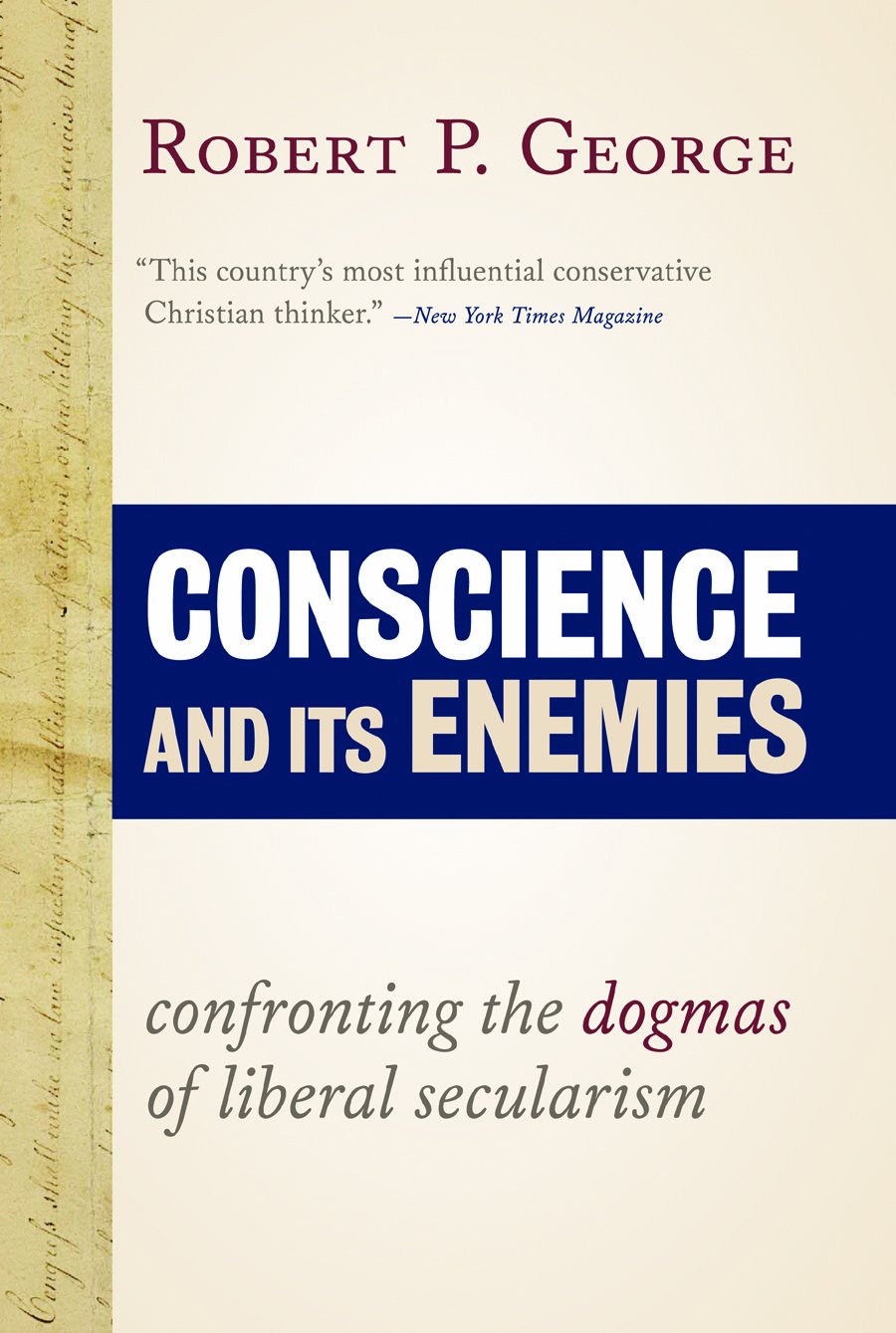ISI Books, 2013.
Description from Publisher:
“Many in elite circles yield to the temptation to believe that anyone who disagrees with them is a bigot or a religious fundamentalist. Reason and science, they confidently believe, are on their side. With this book, I aim to expose the emptiness of that belief.” —From the introduction
Assaults on religious liberty and traditional morality are growing fiercer. Here, at last, is the counterattack.
Showcasing the talents that have made him one of America’s most acclaimed and influential thinkers, Robert P. George explodes the myth that the secular elite represents the voice of reason. In fact, George shows, it is on the elite side of the cultural divide where the prevailing views frequently are nothing but articles of faith. Conscience and Its Enemies reveals the bankruptcy of these too often smugly held orthodoxies while presenting powerfully reasoned arguments for classical virtues.
In defending what James Madison called the “sacred rights of conscience”—rights for which government shows frightening contempt—George grapples with today’s most controversial issues: abortion and infanticide, same-sex marriage, genetic manipulation, euthanasia and assisted suicide, religion in politics, judicial activism, and more. His brilliantly argued essays rely not on theological claims or religious authority but on established scientific facts and a philosophical tradition that extends back to Plato and Aristotle.
Conscience and Its Enemies elevates our national debates. It sets forth powerful arguments that secular liberals are unaccustomed to hearing—and that embattled defenders of traditional morality so often fail to marshal. It also lays out the principles and arguments for rebuilding a moral order.
Table of Contents:
Introduction
Part I: Fundamentals
1. Common Principles, Common Foes
2. The Limits of Constitutional Limits
3. Private Acts, Public Interests
4. Liberalism, Liberation, and the Liberal Arts
5. Judicial Despotism Lessons from the “Great Emancipator”
6. Some Hard Questions about Affirmative Action
7. Immigration and American Exceptionalism
Part II: Morality and the Public Square
8. Natural Law, God, and Human Dignity
9. Why Moral Truths Matter
10. Two Concepts of Liberty … and Conscience
11. Religious Liberty A Fundamental Human Right
12. What Marriage Is—and What It Isn’t
13. The Myth of a “Grand Bargain” on Marriage
14. God and Gettysburg
Part III: Life and Death
15. Conscience and Its Enemies
16. When Life Begins
17. Embryo Ethics What Science Tells Us, What Justice Demands of Us
18. The Personal and the Political Some Liberal Fallacies
19. A Right to Life Denied or a Right to Die Honored?
20. The “Relics of Barbarism,” Then and Now
Part IV: Good Guys and … Not-So-Good Guys
21. Harry Blackmun, Improbable Liberal Icon
22. Andrew Sullivan, A Walking Contradiction
23. Bernard Nathanson, A Life Transformed by Truth
24. He Threw It All Away On the Greatness of Richard John Neuhaus
25. A Practical Philosopher in Every Way, G. E. M. Anscombe
26. The Achievement of John Finnis
27. Elizabeth Fox-Genovese, A Life Well Lived
28. Eugene Genovese, Truth Teller
Notes
Acknowledgments
Index
Online:
ISI Books
Amazon
Google Books

